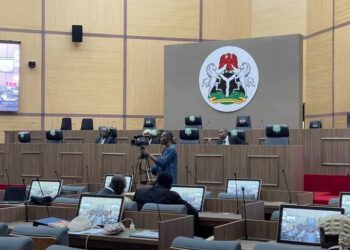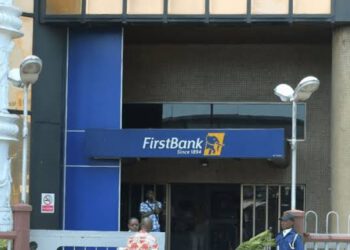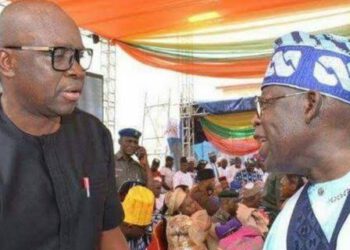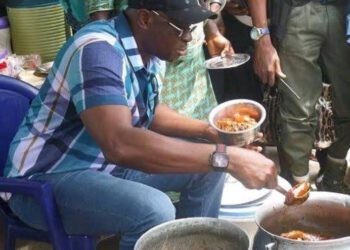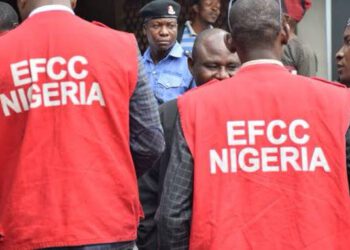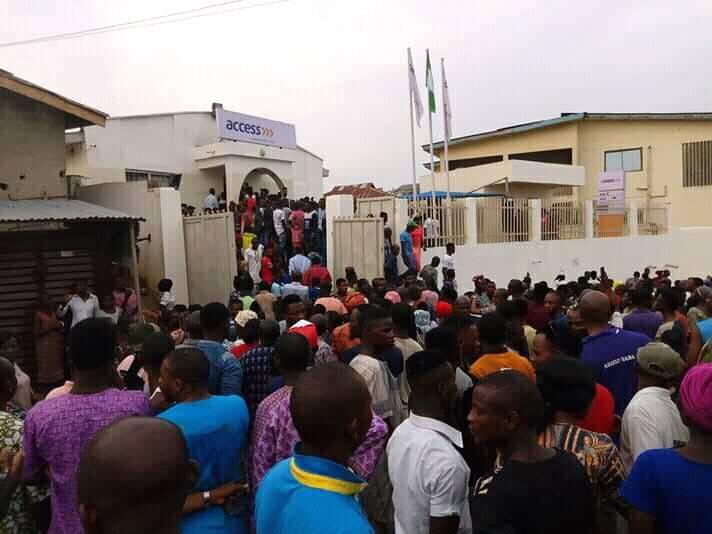A prosecution witness yesterday told the Federal High Court in Lagos how three aircraft flew N1.2billion from Lagos to Ekiti State for delivery to former Governor Ayo Fayose.
Danmola Otuyena, a banker, was testifying in Fayose’s trial for allegedly receiving and keeping N1.2billion and $5million said to have been stolen from the Office of the National Security Adviser (ONSA), contrary to the Money Laundering Act. Otuyena, who headed his bank’s Cash in Transit Services Unit when the transaction occurred, said he accompanied the bullion van that took the cash to the airport.
He was the fourth prosecution witness and was led in evidence by the Economic and Financial Crimes Commission (EFCC) lawyer, Mr Rotimi Jacobs (SAN).
The witness gave evidence on the bank account of Sylvan Mcnamara Limited and how cash was withdrawn from it on the instructions of former Minister of Defence (State) Musiliu Obanikoro on June 16 and 17, 2014. The witness also revealed that although Obanikoro operated the account and was the known holder, he was not the official signatory to it nor was he a director to the company in whose name the account was opened.
Otuyena said he got instructions from his boss to get the cash ready for movement to Ekiti.
“My director gave further instructions that we should move the cash to the airport. We contacted the cash in transit company that renders bullion services – Bankers Warehouse Ltd – and the cash was moved to the private wing of Murtala Mohammed Airport.
“We could not get access when we got there, so we waited outside. My director said someone would be there to attend to us.
“He spoke to a certain Gbolahan Obanikoro through my phone. He helped to process a pass and we were able to enter the airport – the bullion van and myself.
“Later, Musiliu Obanikoro came. My boss called me and spoke to him through my phone and said we should give him the cash. The cash was given to him.
“We loaded the bags of cash into the aircraft. About two or three aircraft were used to load the cash.
“My director, Premier Oyiwo, having identified Obanikoro, said I should release the cash to him. When we pay cash to beneficiaries, they sign off for collection. Obanikoro signed off for collection,” the witness said.
Asked how the cash was packed, Otuyena said: “We have bags designed in a standard way in the banking industry. We used them to package the money. We call them jumbo bags. We used the biggest sizes to pack the money. We used jumbo bags for the N1.2billion.”
Otuyena said he also got a call from his boss on June 17, 2014 to pay N200million to Malik Bauchi from the same account operated by Obanikoro. He said he was asked to waive the identification process.
“But we contacted the account holder. Rather than pay Bauchi, the amount was paid to the account holder. We used Ghana Must Go bags for the N200million,” the witness said.
Under cross examination by defence counsel Chief Kanu Agabi (SAN) and Mr Olalekan Ojo (SAN), the witness said there was an initial instruction that the N1.2billion be paid to six persons, but that they were not available to collect the cash before it was given to Obanikoro. He insisted that Obanikoro was the account holder and ran the company account even though his name was not stated in the account opening documents that he was the sole signatory.
The witness read a board resolution appointing Olalekan Ogunseye as the sole signatory to the account.
“I’ve not come across any other resolution appointing another signatory to the account or Obanikoro as the signatory,” he said.
Ojo asked the witness if there was evidence that Obanikoro personally withdrew the cash from the bank in view of the fact that there was no instruction to that effect in his name.
The witness said: “The narration we have in the bank statement is fund transfer. There was no entry that Obanikoro received the N1.2billion.”
On why that is so, the witness explained: “The instruction to release the cash first went to the Treasury Department, which debited Sylvan Mcnamara’s account and moved the cash to a transit account. So the entry is a default narration for the debit.”
The witness said Obanikoro was not a director to the company, and that he did not know what happened to the cash after he handed it over to the former minister.
Three other witnesses testified earlier for the prosecution: Zonal Heads, Southwest 1 and 2 of a new generation bank, Lawrance Akande and Abiodun Oshodi, and the Head of Financial Operations of another new generation bank, Olaitan Fajuyitan.
Akande said he was informed that money would be brought from the Akure airport to be paid into the accounts of Spotless Nigeria Limited (Fayose’s company and co-accused) and De Privateer Limited.
He said Fayose’s associate, Abiodun Agbele called him in June 2014, saying he had a lodgment of N1.2billion to make. He said he also got a call from Fayose to that effect.
Akande said he asked Oshodi to follow the transaction, adding that they had solicited for deposits from Fayose.
“I had no reason to regard the funds as proceeds of crime. I didn’t observe any anomalies in the operation of the accounts,” he said under cross examination.
Oshodi testified that he got a bullion van that took the money from Akure airport to the bank for lodgment.
“Biodun Agbele came with a security escort, including police and soldiers, and we went to the Akure airport with the branch manager and the bullion van.
“We moved the bullion van close to the plane, and then evacuated the cash. The former minister was there also.
“Agbele supplied the accounts where the money would be lodged – De Privateer, Spotless and the personal account of Fayose,” he said.
The witness also narrated how the cash was deposited. For instance, he said a driver, Taofik, came to the bank 21 times to make some cash deposits in one day. He said Taofik deposited N9.9million 10 times, N9.5million 10 times, and N5.5million once. Other deposits were also made at various dates, he said.
“Taofik happens to be the driver of Abiodun Agbele. The teller was filled by our former cash officer. Taofik couldn’t write,” he said.
Oshodi testified that the deposits were normal, and that he associated with Agbele because he considered him a man of good character.
“I didn’t know the source of the money. I was glad to receive the money. Until I was called by the EFCC, I didn’t find any anomaly with the money,” he said under cross examination.
Oshodi said Fayose also did not personally visit the bank to make any lodgments.
Fajuyitan said he received instruction to make the N1.2billion available, as well as the N200million, which he moved into a transit account He said since the money came from the ONSA account with the Central Bank of Nigeria (CBN), it must be legitimate.
“My bank will not knowingly receive proceeds of crime. The bank does not regard the money as proceed of crime,” the witness said.
Fayose had pleaded not guilty when he was arraigned on an 11-count charge. He was charged with his company, Spotless Limited.
EFCC said Fayose and Agbele, who is facing a different charge, allegedly took possession of N1, 219, 000, 000 on June 17, 2014 to fund the former governor’s 2014 gubernatorial campaign.
The commission said Fayose “reasonably ought to have known” that the money “formed part of the proceeds of an unlawful act, to wit: criminal breach of trust/stealing.” The alleged offence is contrary to Section 15 (2) (d) of the Money Laundering (Prohibition) Act, 2011 (as amended) and punishable under Section 15 (3) and (4).
EFCC said Fayose, on the same day, received cash payment of $5million from Obanikoro, without going through a financial institution, the sum having exceeded the amount authorised by law. The alleged offence, EFCC said, contravenes Sections 1 and 16 (d) of the Money Laundering (Prohibition) Act 2011.
The commission said Fayose benefitted from N4.65billion slush funds allocated by the ONSA under Col. Sambo Dasuki (rtd) during the Goodluck Jonathan administration. EFCC listed Obanikoro as one of 22 witnesses who will testify in the trial. Justice Mojisola Olatoregun adjourned until January 21 and 28 for continuation of trial.



